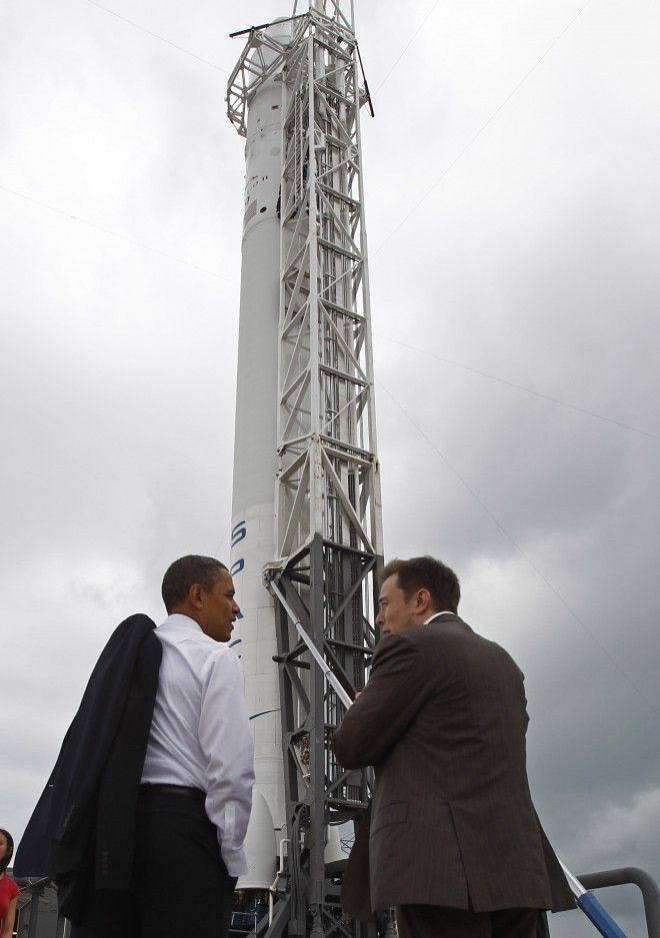NASA and SpaceX Agree On Dragon Spaceship's Flight To Space Station

Private spaceflight company Space Exploration (SpaceX) is on its way to become the first private company to dock with the International Space Station.
SpaceX, an American space transport company, in December 2010 became the first privately funded company to successfully launch, orbit and recover a spacecraft, Dragon.
NASA tentatively agreed to send SpaceX's craft to the station, but the formal approval is still pending.
"We technically have agreed with SpaceX that we want to combine those flights, but we haven't given them formal approval yet," Bill Gerstenmaier, NASA Associate Administrator for Space Operations, said last week. "We still want to go through some more analysis to go take and look and define exactly what criteria makes up that combined mission, what objectives are there, what the go/no go criteria is."
SpaceX's craft is composed of two parts: The Falcon 9 rocket is a multistage reusable rocket that can lift a big amount of cargo, while Dragon is a reusable space capsule that carries the cargo, docks and parachutes back to the earth.
The company will launch its Dragon spaceship on November 30, reaching the space station in around a week. The unmanned capsule will be received by the lab's Canadian robot arm.
Among the Dragon's test missions this winter, one would estimate the capsule's ability to do a "drive-by" of the space station, where it would approach close enough to test navigation and communication gear. The other test is to determine the craft's ability to dock.
A successful docking on December 9 would validate NASA's plan to replace its space shuttles with cheaper, private vehicles.
"Overall, what we want to do is we want to get to cargo delivery as fast as we can, and if the systems are mature enough and the design is mature enough, combining those two flights is that best way to get cargo to ISS in the fastest manner possible," Gerstenmaier said.
According to their contract, NASA will pay $1.6 billion to SpaceX for a minimum of 12 flights, and is allowed to order additional missions for a cumulative total contract value of up to $3.1 billion.
Once its missions are fulfilled, SpaceX will be able to launch its first operational resupply flight in early 2012.
The California-based space transport company is among several vehicles competing to deliver cargo for NASA into space.
Another private company holding a contract with NASA is Orbital Sceinces Corp., which plans to launch the Cygnus resupply ship into space in February 2012. Its chairman and CEO David Thompson noted that NASA's final Atlantis flight "was able to stock up the space station with supplies and consumables to buy some time for both us and SpaceX to get our cargo systems operational, but the pressure is on to get both of these delivery systems proven and into service over the course of the next year."
The return of Space shuttle Atlantis from the resupply flight on July 21 marked NASA's final shuttle mission that advanced America's half-century exploration of the space.
Now that NASA's shuttle program ended, a new chapter in the history of discovery is opening up. The next space explorers' plans and dreams abound, from NASA's plan to land on an asteroid to the yet-to-be-achieved dream of an affordable trip to the moon. On the International Space Station, too, astronauts will be living, working and conducting research on it until at least 2020.
The missions awaiting SpaceX and Orbital Sciences Corp. are expected to play siginificant roles in this new era.
© Copyright IBTimes 2024. All rights reserved.





















